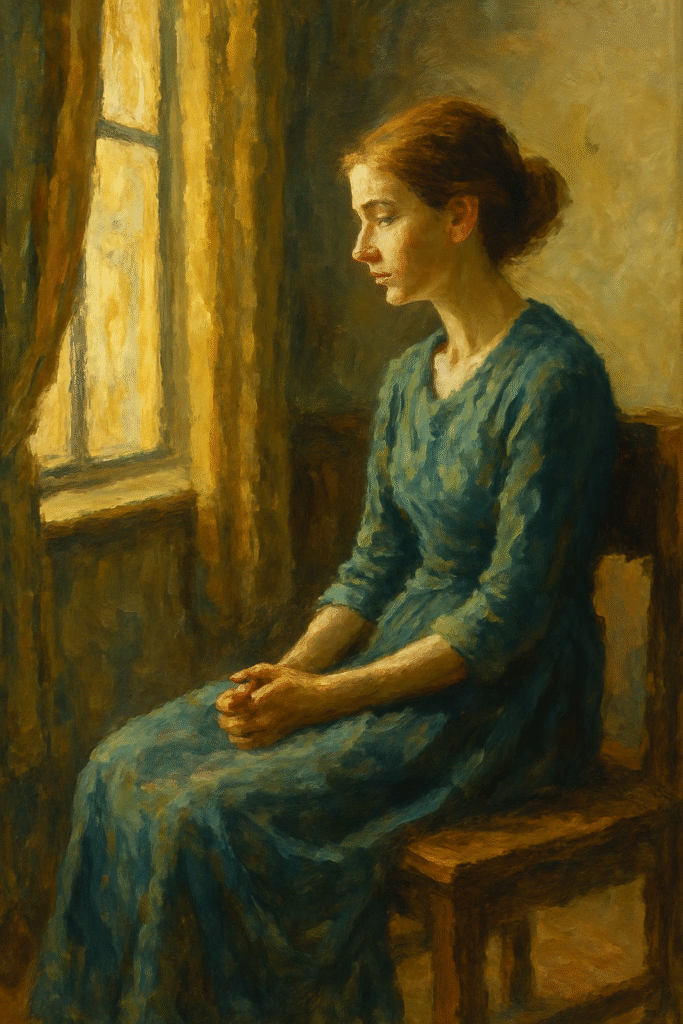Patience is far more than the passive act of waiting; it is a form of quiet resilience, an active engagement with the present moment in a world that worships speed. As instant gratification becomes the default expectation, the ancient virtue of patience emerges as a profound tool for self-discovery. So, what does patience reveal about us? It reveals our capacity for self-control, our emotional maturity, and our ability to find meaning beyond immediate desire. This article explores the rich philosophy of waiting, delving into historical, psychological, and practical perspectives. We will uncover how cultivating patience can reshape our decision-making, enhance our personal growth, and ultimately lead to a more fulfilling life.
Key Takeaways
- Patience as a Skill: Patience is not a passive state but an active skill involving self-control, emotional regulation, and foresight. It is a cornerstone of personal development.
- Philosophical Virtue: Across both Eastern and Western philosophy, patience is celebrated as a virtue essential for wisdom, tranquility, and enlightenment.
- Psychological Benefits: Cultivating patience is scientifically linked to reduced stress, better mental health, and improved decision-making capabilities, as demonstrated by studies like the Marshmallow Test.
- Real-World Impact: Patience enhances relationships, fosters effective leadership, and is a key ingredient for long-term success and personal growth in our modern, fast-paced lives.
Understanding Patience: A Foundation for Self-Discovery
Patience is often defined as the capacity to accept or tolerate delay, trouble, or suffering without getting angry or upset. But this definition barely scratches the surface. Waiting is an unavoidable part of the human experience, capable of evoking anxiety and frustration. However, when we approach it through the lens of the philosophy of waiting, it transforms from a burden into a profound opportunity. This practice of understanding patience is the first step in a journey of patience and self-discovery.
Philosophically, the waiting period creates a unique space for reflection. It allows us to examine our desires, question our impulses, and connect with our deeper motivations. In this quiet interval, patience encourages acceptance of the present while fostering a richer appreciation for the future. Those who master the art of waiting don’t just endure time; they use it to cultivate profound insights into themselves and the world.
A Journey Through Time: Philosophical Perspectives on Patience
The importance of patience has been a recurring theme in philosophical thought for centuries, highlighting its role as a fundamental human virtue.
The Stoic Virtue: Patience in Ancient Philosophy
In Ancient Greece and Rome, the Stoics championed patience as essential for achieving ataraxia, or a state of tranquil mind. Philosophers like Seneca and Epictetus saw life as inherently unpredictable and argued that our power lies not in controlling external events but in our response to them. Seneca’s famous assertion, “Sometimes even to live is an act of courage,” frames patience as a courageous choice—an active and resilient engagement with life’s challenges, not mere passivity. For the Stoics, patience in philosophy was the bedrock of wisdom.
Plato also suggested that patience is vital for the philosophical pursuit itself. The journey toward knowledge requires restraint from jumping to conclusions and the contemplative endurance to let understanding unfold over time.
The Path to Enlightenment: Patience in Eastern Philosophy
Eastern philosophies place immense value on patience. In Buddhism, kshanti (patience or forbearance) is one of the six paramitas, or perfections, that lead to enlightenment. It represents the ability to endure hardship and suffering with a calm and compassionate mind. Here, patience is deeply intertwined with mindfulness and waiting. By being fully present and accepting reality without resistance, one cultivates wisdom. This perspective teaches that the ability to wait is a powerful tool for spiritual and patience and personal growth.
Modern Musings: The Philosophy of Patience Today
Contemporary thinkers continue to explore the philosophy of patience. Author Alain de Botton, in The School of Life, argues that in our era of impatience, learning to wait is a radical act. He posits that by managing our expectations and embracing delay, we create space for life’s richness to emerge. The benefits of waiting are found not in what we eventually receive, but in the growth that occurs during the wait itself. This view is critical for navigating the pressures of patience in modern life.
The Psychology of Waiting: How Patience Shapes Our Mind
While philosophy provides the ‘why’, psychology explains the ‘how’. The experience of waiting has a significant, measurable impact on our brains and behavior.
The Mental Toll of Waiting vs. The Benefits of Patience
Psychologically, waiting can be stressful. Our brains often perceive waiting as a loss of time, which can trigger anxiety and a focus on negative outcomes. However, the psychological benefits of patience are immense. Studies published in the Journal of Positive Psychology show that patient individuals report lower levels of depression and stress. They exhibit greater emotional resilience, allowing them to react constructively in difficult situations, which is crucial for both mental health and strengthening patience in relationships.
Furthermore, patience is a key component of improved decision-making. By resisting the urge for immediate results, patient people are less susceptible to impulsive behaviors, leading to better long-term outcomes in finances, health, and personal connections.
A Classic Study: What the Marshmallow Test Reveals About Us
The famous Marshmallow Test at Stanford University provides a compelling illustration of delayed gratification. In this experiment, children were offered one marshmallow immediately or two if they could wait for 15 minutes. Follow-up studies revealed a stunning correlation: the children who waited tended to have better life outcomes, including higher academic scores and healthier coping skills. This experiment powerfully demonstrates that patience is not just about waiting; it’s fundamentally linked to self-control, a critical skill for success and well-being.
The Tangible Impact: Patience, Decision-Making, and Personal Growth
Understanding the link between patience and personal growth is key to unlocking our potential. It is at this intersection that we see how an abstract virtue translates into concrete life improvements.
From Impulse to Insight: Making Better Choices
When we practice patience, we give ourselves the gift of time—time to gather information, consider consequences, and align our actions with our long-term goals. This reflective pause is transformative. In a moment of crisis, it can be the difference between a rash reaction and a measured response. This process of experiential learning is a powerful engine for personal growth, as we learn to navigate uncertainty with wisdom rather than fear.
Patience in Relationships and Leadership
The benefits of patience extend beyond the self. In both personal and professional settings, patience is a cornerstone of strong connections. Leaders who practice patience create environments where teams feel safe to innovate and learn. Companies like Amazon famously prioritize long-term growth over short-term profits, a corporate strategy built on patience. Similarly, in personal relationships, taking the time to listen and understand fosters trust and deepens emotional bonds.
How to Cultivate Patience in a World of Instant Gratification
Developing patience skills is a conscious practice. Here are a few actionable strategies for cultivating patience in your daily life:
- Practice Mindfulness: Engage in mindfulness meditation or simple deep-breathing exercises. This trains your brain to focus on the present moment and reduces the anxiety associated with waiting.
- Reframe the Wait: Instead of seeing waiting as wasted time, view it as an opportunity. Use a long queue to listen to a podcast, practice your breathing, or simply observe the world around you. This turns a passive wait into an active moment of mindful waiting.
- Set Realistic Expectations: Much of our impatience stems from unrealistic timelines. Practice better time management and patience by breaking large goals into smaller, manageable steps and building buffer time into your schedule.
- Embrace Discomfort: Intentionally put yourself in situations that require patience, like trying a complex recipe or learning a new instrument. This builds your ‘patience muscle’ and increases your tolerance for delay.
Conclusion: What Patience Ultimately Reveals About You
In a society that relentlessly pushes for ‘more, faster, now,’ the deliberate act of waiting is both a rebellion and a refuge. The philosophy of waiting teaches us that patience is not an empty pause but a fertile ground for growth. So, what does patience reveal about us? It reveals the strength of our character, the depth of our wisdom, and our ability to find peace amidst chaos. It shows that we value long-term fulfillment over short-term pleasure. By embracing the art of waiting, we embark on a journey of patience and self-discovery, learning to connect more deeply with ourselves, others, and the rich, unhurried rhythm of life itself.
Frequently Asked Questions About the Philosophy of Waiting
What is patience?
Patience is the ability to endure difficult situations, delays, or suffering without becoming frustrated or upset. From a philosophical perspective, it’s an active virtue that fosters inner peace, resilience, and self-awareness.
Why is the importance of patience so crucial for personal development?
Patience is a cornerstone of patience and personal growth because it enables thoughtful reflection, better decision-making, and emotional stability. It helps individuals resist harmful impulses and make choices that align with their long-term values.
How can I start cultivating patience?
Cultivating patience can be achieved through consistent practice. Start with mindfulness exercises, reframe waiting periods as opportunities for reflection, set realistic goals, and practice gratitude. Engaging in hobbies that require focus, like gardening or reading, can also build your patience.
How does patience improve relationships?
Yes, patience in relationships is transformative. Patient individuals are better listeners, more empathetic communicators, and less likely to react negatively during conflicts, which fosters deeper trust and connection with others.
What does the Marshmallow Experiment teach us about delayed gratification?
The Marshmallow Experiment highlights the profound link between patience and success. It showed that the ability to delay gratification is a strong predictor of positive life outcomes, connecting patience directly to self-control and wise decision-making.
How is patience linked to better mental health?
Patience is strongly correlated with improved mental health. By fostering a calm and measured response to life’s challenges, it helps reduce stress, anxiety, and feelings of being overwhelmed, leading to a more balanced emotional state.


